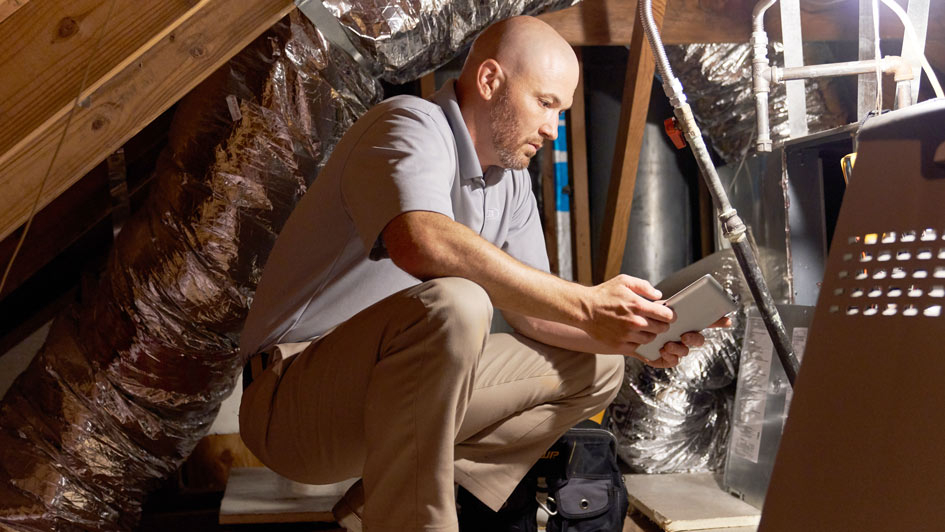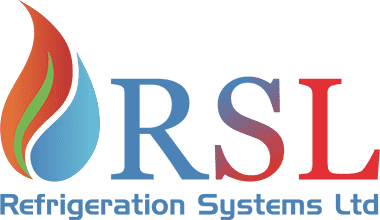
Did you know that more than 50% of your home’s energy costs are from your heating and cooling? That’s why it’s so important to maintain an energy-efficient HVAC system.
Furnace efficiency standards were last revised to an Annual Fuel Utilization Efficiency (AFUE) rating of 80% in 2015. This rating system illustrates how effective your furnace is at natural gas into heat. An AFUE rating of 80% means your furnace wastes about 20% of the fuel it uses while producing heat.
In 2022, the U.S. government recommended new energy-efficiency standards for residential gas furnaces that would significantly decrease emissions, save customers money and encourage sustainability.
The updated standards are anticipated to:
- Save Americans $1.9 billion annually.
- Cut carbon emissions by 373 million metric tons and methane emissions by 5.1 million tons over three decades, the equivalent of what 61 million homes emit each year.
Starting in 2029, the proposed rule would mandate all new gas furnaces to feature AFUE ratings of 95%. This means furnaces would turn nearly 100% of the gas into usable heat.
So what does all of this mean for your existing furnace in 2023? As of now, very little, as the proposed rule wouldn’t go into effect until 2029 at the earliest and will not affect furnaces that are already in use.
But if you need furnace replacement in soon, highly energy-efficient furnaces are ready and available. Find out how these furnaces can lower your monthly energy bills.
Guide to Condensing Furnaces
How Condensing Furnaces Work
A condensing furnace is a kind of heating system that uses a secondary heat exchanger to capture wasted heat from the furnace's exhaust gases. This reduces the amount of energy wasted, improves energy efficiency and lowers CO2 emissions. It also requires less natural gas to generate the same volume of heat compared to other types of furnaces.
How Condensing Furnaces Differ from Non-Condensing Furnaces
The main difference between a condensing furnace and a non-condensing furnace is condensing models use a secondary heat exchanger to collect any wasted heat from its exhaust gases, while the latter does not.
How Long Condensing Furnaces Last
The life span of a condensing furnace is dependent on the brand, model and other factors. Usually, a condensing furnace should last between 10-20 years with appropriate maintenance and regular service. If your heating system doesn’t have regular furnace maintenance, it may not last as long.
Why Condensing Furnaces Are More Expensive
Typically, condensing furnaces type of system is much more efficient than conventional furnaces, as it only uses the minimum amount of energy required to heat your home, which subsequently saves money on your utility bills.
Many variable-speed furnaces are condensing furnaces, although a few are available in non-condensing models with lower AFUE ratings. If a manufacturer wants a furnace to be classified as a condensing furnace, it must offer an AFUE rating of 90% or higher.
Do Variable-Speed Furnaces Run All the Time?
A variable-speed furnace doesn’t operate all the time. Rather, it runs at different speeds according to the temperature in your Richmond home as well as the amount of energy it uses to reach that temperature.
When sufficient energy is needed to maintain your set temperature level, the furnace will switch to a higher speed to handle the demand. This allows for more efficient heating in your home while also providing quieter operation.
Guide to Two-Stage Furnaces
Two-Stage Furnaces: What They Are and How They Work
A heating system with two settings of operating - high and low - is called a two-stage furnace. When set to the low stage, the furnace runs at a reduced capacity as a way to maintain the chosen temperature in your home more efficiently. During the high stage, the furnace will instead operate at full capacity to meet demands for more heat. With a two-stage furnace, you can experience improved energy efficiency and consistent temperatures all across your home.
While two-stage furnaces are very efficient, not all all types are condensing furnaces.
Does a Two-Stage Furnace Run All the Time?
A two-stage furnace does not stay on indefinitely. In the low stage of operation, the furnace performs at limited capacity in order to sustain a desired temperature more efficiently within your home. When additional energy is needed to maintain the set temperature, the heating system shifts to its high stage and runs at full capacity. As such, two-stage furnaces are proven to help reduce energy costs without operating around the clock.
Contrasting Two-Stage and Variable-Speed Furnaces
Two-stage furnaces have two stages of functionality, low and high. During the low stage, the furnace works at reduced capacity as a way to maintain a desired level of comfort within your home. When more warmth or cooling is necessary, the furnace will change over to its high stage and operate at peak capacity.
Variable-speed furnaces, meanwhile, can work at multiple speeds in order to keep a comfortable temperature at home. Such precise functionality can also help reduce energy costs, as it is not constantly running on full power like many two-stage furnaces do.
Differences Between One- and Two-Stage Furnaces
One-stage furnaces have a single stage motor and operate either at full power or not at all. Consequently, the furnace is always running in order to maintain a desired temperature within your home.
Two-stage furnaces, by comparison, have two stages of operation, low and high. During the low stage, the furnace runs at reduced capacity in order to maintain the desired temperature more efficiently. When more warmth or cooling is desired, the furnace will shift to its high stage and operate at maximum capacity.
Arrange Your Furnace Install Appointment with Refrigeration Systems Ltd. Today
Making sense of modern furnace technology can be confusing. That’s why Refrigeration Systems Ltd. experts are here to help with a free, no-pressure quote for furnace installation. We’ll assess your home, your heating needs and your budget before helping you find the right solution. Contact us at 778-764-2026 to get started today!
